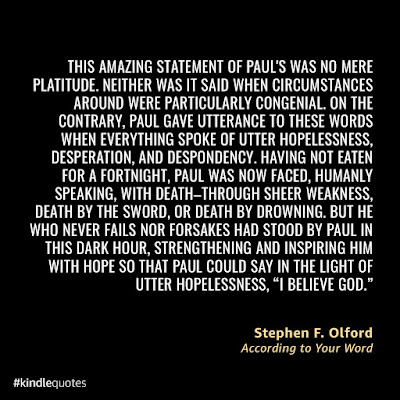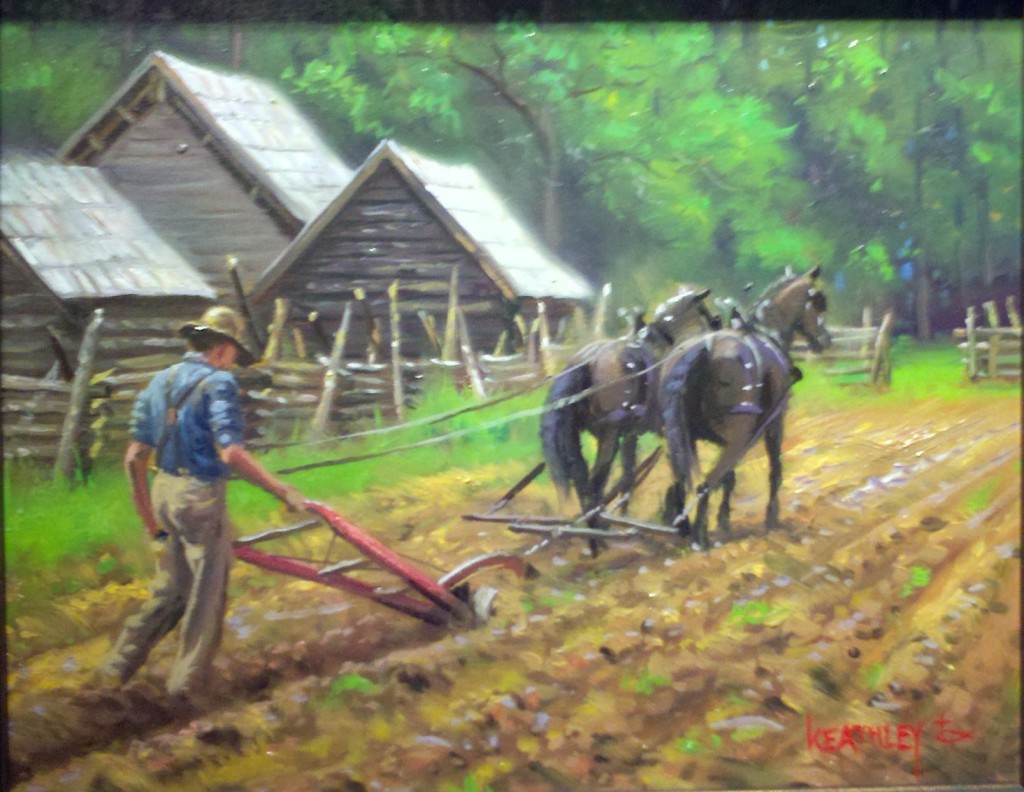“Therefore, since we have this ministry, as we have received mercy, we do not lose heart. … Therefore we do not lose heart. Even though our outward man is perishing, yet the inward man is being renewed day by day.” (2 Cor. 4:1,16)
Church ministry has its burdens. Sometimes a load is thrust upon us that is crushing. Paul certainly felt the weight of the work—such gravity in his accountability to the Lord and immensity of his responsibility to the church. In 2 Corinthians, he once more writes to a congregation that in its infancy showed all the signs of immaturity. 1 Corinthians addresses a plethora of problems that plagued the church, as the Apostle hit these matters head on and forcefully. Now, in 2 Corinthians, the man of God would like to move on to more celebration of what God was doing among them, than confrontation of what they were failing to do. Yet, their ongoing struggles, Paul’s own battles, and the wear and tear of his duties tempted him to be disheartened. He finds the load lifted, however, by God’s provision of mercy and promise of glory in 2 Corinthians 4:1-5:11. This is expressed in two key verses (4:1,16). Here is deliverance for the disheartened.
There is THE PROVISION OF MERCY, (4:1-15). Paul had the opportunity to serve the Lord, because of the mercy he had received, (v. 1). The light of Christ had shone into the darkness of his sin as he travelled the road to Damascus. At that time, he hated the name of Jesus and all those who claimed to be his followers. He lived to obliterate that name by oppressing the church. That all changed when he met Jesus. He never got over that experience. When we are tempted to be disheartened by the difficulties we face in ministry—when we are tempted to complain, “God this is not fair. All I am trying to do is serve You, and now the people are biting this hand that feeds them!”—let us remember what we deserve. I should be in hell. All of us sinners should be. When we face problems here, let us know that they are nothing compared to perdition hereafter! Yet, we have received mercy, so do not lose heart. And it was not just one time, but daily. We rejoice as did another disheartened preacher, Jeremiah:
“This I recall to my mind, Therefore I have hope. Through the Lord’s mercies we are not consumed, Because His compassions fail not. They are new every morning; Great is Your faithfulness. ‘The Lord is my portion,’ says my soul, ‘Therefore I hope in Him!’ The Lord is good to those who wait for Him, To the soul who seeks Him. It is good that one should hope and wait quietly For the salvation of the Lord. It is good for a man to bear The yoke in his youth. Let him sit alone and keep silent, Because God has laid it on him; Let him put his mouth in the dust— There may yet be hope. Let him give his cheek to the one who strikes him, And be full of reproach. For the Lord will not cast off forever. Though He causes grief, Yet He will show compassion According to the multitude of His mercies.” (Lam. 3:21-32).
Paul renounced his Pharisaical disposition and embraced his Gospel declaration, (v. 2). Outwardly, he was a model of piety, but inwardly a man of depravity. Religion could not change him at the core—he needed regeneration. He knew the Scripture, but did not know the Author. All that would change on the Damascus Road.
As, we preach to people, it seems at times that there is a veil over them, that keeps them in the dark, (v. 3-4). Indeed, it is a spiritual battle we are in when we preach. Satan has blinded the minds of the unbelieving, and our task is to open their eyes—and that requires a miracle. Yet, Paul knows such miracles can happen, for he was a recipient of such mercy. Let us then devote ourselves to the task, (v. 5-6).
Are we weak? Of course we are. Paul is not some power of positive thinking preacher wearing rose-colored glasses. He admits to the struggle, but is resigned to the service, as he is reliant on the supernatural, (v. 7-15). As God works despite our frailty, He gets all the glory. The mention of glory takes us to our next truth that brings deliverance to the disheartened.
There is not only the provision of mercy, there is also THE PROMISE OF GLORY, (4:16-5:11). Paul was pouring himself out day by day. But even though the wear and tear of life was taking a toll on him physically, he was gaining ground spiritually, (4:16-17). In light of the weight of glory he would know in eternity, the burdens of this world are light. They not only do not hinder the faithful preacher, but help him to gain in the reward to come. It reminds me of the old slogan that hung in our football locker room: “No pain; no gain.”
We become disheartened when we focus on the temporal, instead of the eternal, (4:18). Paul would not only be drained in Gospel work, he would die for Gospel witness—and he says, “So what?” As Hebrews 9:27 declares, “it is appointed for men to die once, but after this the judgment,” and Paul expounds that here, (5:1-11). It is the gravity of this that called him to preach with fervency and urgency. We will give account for our stewardship of the Word. Making excuses about how hard it is will not matter if we fail. Jesus told this parable:
“For the kingdom of heaven is like a man traveling to a far country, who called his own servants and delivered his goods to them. And to one he gave five talents, to another two, and to another one, to each according to his own ability; and immediately he went on a journey. Then he who had received the five talents went and traded with them, and made another five talents. And likewise he who had received two gained two more also. But he who had received one went and dug in the ground, and hid his Lord’s money. After a long time the Lord of those servants came and settled accounts with them. So he who had received five talents came and brought five other talents, saying, ‘Lord, you delivered to me five talents; look, I have gained five more talents besides them.’ His Lord said to him, ‘Well done, good and faithful servant; you were faithful over a few things, I will make you ruler over many things. Enter into the joy of your Lord.’ He also who had received two talents came and said, ‘Lord, you delivered to me two talents; look, I have gained two more talents besides them.’ His Lord said to him, ‘Well done, good and faithful servant; you have been faithful over a few things, I will make you ruler over many things. Enter into the joy of your Lord.’ Then he who had received the one talent came and said, ‘Lord, I knew you to be a hard man, reaping where you have not sown, and gathering where you have not scattered seed. And I was afraid, and went and hid your talent in the ground. Look, there you have what is yours.’ But his Lord answered and said to him, ‘You wicked and lazy servant, you knew that I reap where I have not sown, and gather where I have not scattered seed. So you ought to have deposited my money with the bankers, and at my coming I would have received back my own with interest. Therefore take the talent from him, and give it to him who has ten talents. ‘For to everyone who has, more will be given, and he will have abundance; but from him who does not have, even what he has will be taken away. And cast the unprofitable servant into the outer darkness. There will be weeping and gnashing of teeth.’” (Matt. 25:14-30).
Judas was such a man. He finally came to the conclusion that following Christ was too great a cost, and decided to cut his losses—selling his soul for 30 pieces of silver. What would it profit a man to gain the whole world and lose his soul? He sold his soul for far less! That man was a preacher—yet, a spiritual casualty. He killed himself rather than shoulder his responsibility. I have known preachers who chose to take their own life. I am not judging their eternal disposition. That is above my pay grade. The truth is that one may become so mentally vexed that their reason leaves them. Suicide is not the unpardonable sin. What I will say is that it is not the way you want to go meet God.
This is a terrifying thought. We can know about God, yet we must be known to God. Paul testifies to the reality his experience and is confident others would affirm it, (5:11).
When we preach eternal souls hang in the balance. Our next sermon could be the last one we ever preach or the last one they ever hear. How many will go to hell from a church pew? There will be some who go from a pulpit. They talked the talk, but did not walk the walk. Have we, as Paul, “renounced the hidden things of shame,” and are we pursuing holiness; “not walking in craftiness,” using ministry for the comforts of earth as pious frauds; “nor handling the word of God deceitfully,” in telling people what they want to hear rather than what they need to hear?
Though it is possible that one who reads these words might be deceived, it is more probable that some are only disheartened. Certainly, we all face that challenge, as did so great a man of God as Paul. Oh, weary brother—are you disheartened? Let is look to the provision of mercy and the promise of glory, and press on. Here is an old Gospel song to encourage us:
(1) Oft times the day seems long, our trials hard to bear,
We're tempted to complain, to murmur and despair;
But Christ will soon appear to catch His Bride away,
All tears forever over in God's eternal day.
Refrain
It will be worth it all when we see Jesus,
Life's trials will seem so small when we see Christ;
One glimpse of His dear face all sorrow will erase,
So bravely run the race till we see Christ.
(2) Sometimes the sky looks dark with not a ray of light,
We're tossed and driven on, no human help in sight;
But there is one in heav'n who knows our deepest care,
Let Jesus solve your problem - just go to Him in pray'r.
Refrain
It will be worth it all when we see Jesus,
Life's trials will seem so small when we see Christ;
One glimpse of His dear face all sorrow will erase,
So bravely run the race till we see Christ.
(3) Life's day will soon be o'er, all storms forever past,
We'll cross the great divide, to glory, safe at last;
We'll share the joys of heav'n - a harp, a home, a crown,
The tempter will be banished, we'll lay our burden down.
Refrain
It will be worth it all when we see Jesus,
Life's trials will seem so small when we see Christ;
One glimpse of His dear face all sorrow will erase,
So bravely run the race till we see Christ.
Amen? Amen and amen!















